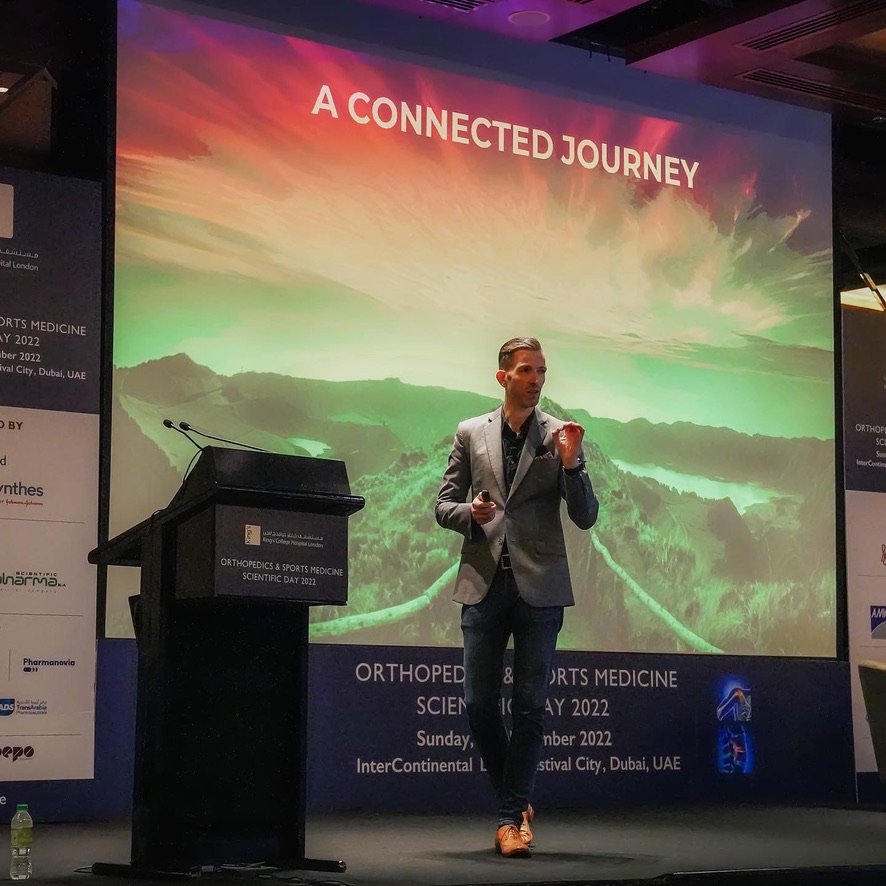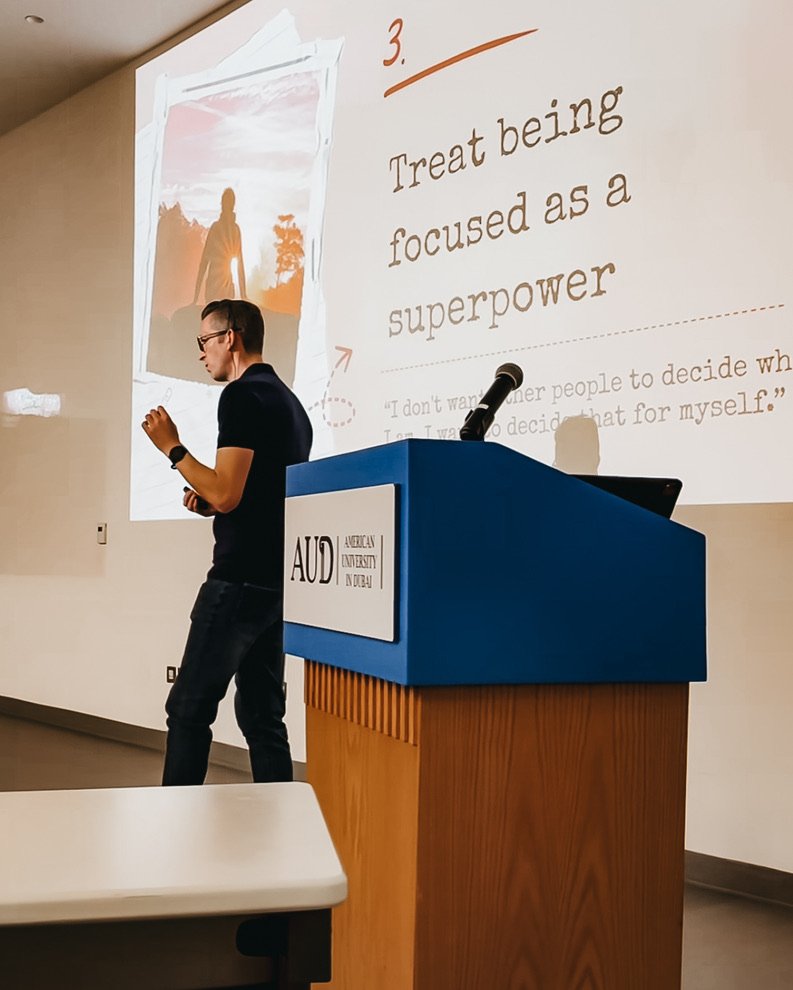
Coaching
Explore Coaching
About Coaching
The Transformational Role of a Coach
Coaches aren’t problem solvers or fixers. They are thinking partners. As we age, we often become more rigid in our thinking, too busy to stop and examine our beliefs and choices. The best coaches help people recognise gaps and blind spots in their reasoning. When we become unsure of what we know, learning and transformation happen.
Coaches help challenge beliefs, reframe perspectives, and redefine situations. They help people discover new solutions, take action on previously avoided issues, and commit to long-term behavioural changes. Coaching provides clarity and better decision-making, helping people use their creativity and resources to see beyond their own blocks and beliefs, ultimately solving their own problems.
Coaches are transformational partners who recharge the human spirit, illuminating the path to a deep and fulfilling life.
The Difference Between Coaching, Consulting, Therapy, And Mentoring
Imagine Michelangelo standing before the block of marble from which he would carve his masterpiece, The David. The process of transforming this raw material into an incredible work of art requires not just skill, but the right kind of support and guidance. Each type of support he might receive highlights different ways to achieve his vision.
A therapist might explore Michelangelo’s past, delving into the experiences and emotions that led him to sculpt. The focus is on understanding his history and emotional state, helping him heal and grow from past experiences.
A consultant might analyse the techniques of great sculptors, creating a step-by-step guide on how to carve a masterpiece. They provide expert advice and specific strategies to achieve the desired result.
A mentor, an experienced sculptor, shares their own experiences and offers specific guidance on techniques and methods. They provide advice and practical tips based on their journey and accomplishments.
A coach, however, stands beside Michelangelo, not to wield the chisel themselves, but to encourage his vision, guide his hand when he seeks direction, and help him see the possibilities within the marble. Just as Michelangelo saw David within the block and brought him to life, a coach helps you see new perspectives in yourself, guiding you as a trusted partner as you carve out your own masterpiece of a deep, fulfilling life.
Benefits Of Coaching
The Value of a Thinking Partner
Socrates reportedly said, “I cannot teach you anything, I can only make you think.”
I’m here to help make you think. To give you the time and thinking space to uncover the paths that truly matter to you professionally and personally.
By helping you challenge beliefs, reframe perspectives, and redefine situations, you can discover new insights and perspectives. This provides you with greater clarity and better decision-making, facilitating progress and growth across all areas of your life.
You might seek a coach to help you in the following areas and scenarios:
Leadership Enhancement And Team Dynamics
✔ Enhancing leadership capabilities
✔ Inspiring greater team collaboration and performance
✔ Aligning leadership teams and shifting corporate culture
Personal Growth And Fulfilment In Life
✔ Articulating purpose and vision
✔ Building significant personal growth and fulfilment
✔ Overcoming imposter syndrome
Communication And Relationship Building
✔ Improving communication skills
✔ Strengthening relationships at work and home
✔ Enhancing emotional intelligence, empathy, and cultural awareness
Work-Life Balance And Stress Management
✔ Achieving greater balance between work and life
✔ Building resilience and maximising physical and mental health
✔ Making tough decisions easier
Navigating Change And Career Development
✔ Leading through organisational change and disruptive global trends
✔ Increasing employee engagement
✔ Preparing for and succeeding in new roles and opportunities
These are just a few areas where a coach can be your trusted thinking partner.
Transform With My Coaching
What I Offer
A Trusted Thinking Partner
Providing a confidential and supportive environment to help you think through important professional and personal challenges.
An ICF-Certified Coach
Trained at both the Associate and Professional level by the International Coaching Federation (ICF), the gold standard in coaching.
A Proven Strengths-Based Coaching Methodology
Using Gallup CliftonStrengths to harness your natural talents and create breakthroughs in thinking and decision-making.
Tangible Outcomes
Establishing clear, actionable steps to support long-term behavioural change in your personal and professional life.
A Global Perspective
Gained from working with leaders across diverse cultures, countries, and industries worldwide.
Director-Level Experience
Bringing insights from multiple senior roles within a global business and as an entrepreneur.
My Personal Journey
Drawing on my own experiences of overcoming significant health challenges, including open-heart surgery, and completing multiple endurance events to support your resilience and growth.
A Commitment To Lifelong Learning
Continuously engaging in personal and professional development to bring the latest insights and techniques to my coaching practice.

My Coaching Philosophy
My coaching philosophy is simple: ‘Meet someone where they are, but don’t leave them there.’ This means I partner with you to fully understand your current situation, your professional and personal aspirations, and any obstacles in your way. Together, we take that journey with a clear structure that produces tangible, actionable steps.
From Dubai to Dublin, Austin to Auckland, I offer a highly customised coaching partnership committed to helping you create a deeply fulfilling professional and personal life.
Rich Business And Life Experiences
With a 25-year track record as a business leader, entrepreneur, writer, speaker, and strategic consultant, and now a trained coach at both the Associate and Professional levels with the International Coaching Federation (ICF), I bring a wealth of practical experience and the essential qualifications and skills to be a transformational coach for senior professionals, leaders, and executives.
During my two decades at Dell Technologies, I held senior global roles in strategy, leadership, and communications. As Senior Director and Chief of Staff, I provided counsel on a $40 billion business that spanned over 170 countries. This experience has given me a deep understanding of the business environment, its culture, and its nuances. Additionally, I have board-level experience, ran my own businesses, and served in ambassadorial roles, further enriching my expertise and insights.
My personal journey—overcoming sudden open-heart surgery and completing multiple marathons—has deeply influenced my understanding of life’s challenges and built a strong sense of resilience. These experiences have shown me that resilience is not just about recovery but about moving forward with greater wisdom and perspective, transforming obstacles into opportunities. This outlook shapes my role as a thinking partner and coach, helping clients navigate their own challenges with confidence and clarity.
The Ideal Clients I Love to Work With
Selecting the right client is as important as choosing the right coach for a successful coaching relationship. I typically work with a small number of clients at any given time to ensure a strong fit and personalised attention. I specialise in one-on-one coaching with senior professionals who recognise the importance of investing in themselves, are reflective, open to learning, and ready to take action.
My Expectations
My ideal clients are professional, punctual, and committed to personal growth and new perspectives. I expect clients to be engaged and proactive in their coaching journey, including switching off mobile devices, securing a quiet space, and preparing for each coaching session. This mirrors the environment I create for myself for every coaching session. I know I’m bringing value to the partnership when I see my clients moving forward, taking action, and making significant changes toward a more well-rounded, fulfilling, and balanced life.
My Coaching Methodology & Model
Having a structured coaching methodology and model is crucial for delivering consistent, high-quality results. It provides a clear framework that guides the coaching process, making sure each session is focused, effective, and aligned with your personal and professional goals.
Coaching Methodology
I use a proven strengths-based coaching methodology called the Gallup CliftonStrengths. This is a powerful assessment tool designed to identify an individual’s unique strengths across 34 distinct themes. This scientifically backed approach provides deep insights into what you naturally do best, enabling you to harness these strengths for personal and professional growth.
By focusing on your top 5 strengths, we concentrate on your most dominant talents, which are the areas where you have the greatest potential for excellence. This targeted focus allows us to maximise your impact, enhance your performance, and foster a deeper sense of fulfilment and achievement in your journey.
Coaching Model
Closely aligned with the Gallup CliftonStrengths framework, I created the DEEP Coaching Model to ensure a strengths-based approach throughout the coaching process. The model also integrates the core principles of Deep Life Journey—Intention, Balance, and Cultivation—into each phase, reinforcing a holistic and meaningful coaching experience.
The DEEP Coaching Model is structured around four key phases:
Discover, Explore, Empower, and Perform.
Each stage emphasises a partnership between the coach and the client, with the client always in the driving seat. The model is flexible and adaptive, based on the specific needs of the client. I regularly integrate client feedback to tailor the process and ensure it aligns with their evolving goals and needs.
The DEEP Coaching Model facilitates transformative growth and sustained change by understanding your strengths and goals (Discover), encouraging self-awareness and new solutions (Explore), developing actionable steps (Empower), and achieving lasting transformation (Perform).
Each phase incorporates the principles of Intention, Balance, and Cultivation, ensuring a comprehensive approach to professional and personal development.
Explore the model in more detail.
-
Objective: Gain a deep understanding of the current situation, goals, and challenges.
Activities:
Detailed discussions to understand professional and personal aspirations.
Identifying key areas for development and growth, as well as current challenges and opportunities.
Initial assessment using Gallup CliftonStrengths to identify the top 5 natural talents.
-
Objective: Encourage self-awareness, reframing, and new insights through thoughtful reflection and enquiry.
Activities:
Reflective questioning to examine beliefs, values, and motivations.
Building trust and safety through curiosity, care, and active listening.
Powerful questions to identify blind spots and create new perspectives.
-
Objective: Develop and implement actionable steps towards achieving goals and moving forward.
Activities:
Co-creating detailed actions that are specific, measurable, actionable, realistic, and time-bound (SMART), leveraging the strengths identified in the Discover stage.
Accountability measures to ensure commitment and follow-through.
Recognising progress and celebrating achievements.
-
Objective: Achieve lasting change and continuous improvement, moving towards a deep life.
Activities:
Incorporating new behaviours and insights into daily life, using the strengths identified in the Discover phase.
Setting new goals and adapting for ongoing growth.
Fostering a mindset for lifelong learning and development.

“I coach to help people see better—
with clarity and confidence.”
Key Benefits Of The DEEP Coaching Model
Frequently Asked Questions
-
Executive and leadership coaching is a professional relationship that helps you achieve your personal and professional goals through guided reflection, feedback, and action. It benefits you by challenging beliefs, reframing perspectives, and redefining situations, leading to new insights and greater clarity. This enhanced clarity can improve your leadership skills, decision-making, and work-life balance. Coaching helps you overcome obstacles, leverage your strengths, and navigate career development and change. Additionally, it can improve your communication skills, build stronger relationships, and drive personal growth, ultimately leading to greater success and fulfillment in all areas of your life.
-
Coaching focuses on helping you find your own solutions and develop your skills through questioning and reflection. Mentoring typically involves guidance from someone with more experience in a specific field, while consulting provides expert advice to solve specific problems. Coaching empowers you to discover your potential and create sustainable change through a collaborative process.
-
Therapy typically focuses on healing and resolving past issues and emotional difficulties, often dealing with trauma, mental health concerns, and personal problems. Coaching, on the other hand, is forward-focused and aims to help you set and achieve personal and professional goals through guidance, support, and action.
-
Even highly experienced professionals can benefit from coaching. It provides a fresh perspective, helps you identify blind spots, and supports continuous growth. Coaching can help in navigating complex challenges, improving leadership effectiveness, inspiring greater team collaboration and performance, and achieving a better work-life balance, ensuring you continue to evolve and excel in your career.
-
Yes, coaching is a confidential process. Anything discussed during coaching sessions remains private and is not shared without your consent. This creates a safe space for you to explore your thoughts and challenges openly.
-
Coaching typically involves regular weekly sessions lasting 60 minutes each. The overall duration of the coaching engagement can range from a few months to a year or more, depending on your specific needs and objectives. I offer high-value, customised coaching packages tailored to your unique requirements, with a minimum commitment of three months to achieve meaningful and lasting transformation.
-
It's common not to have specific goals at the start. A coach can help you clarify your objectives by exploring your values, strengths, and aspirations. Together, you’ll identify areas for growth and set actionable goals to achieve meaningful progress.
-
Choosing the right coach is important for a successful coaching relationship. Consider factors such as the coach’s experience, qualifications, coaching style, and your personal comfort level with them.
-
The results of coaching vary depending on your goals and commitment. Common outcomes include improved leadership skills, enhanced decision-making, better work-life balance, increased self-awareness, and greater overall life satisfaction. A coach will work with you to measure progress and achieve your desired outcomes, but it is important to acknowledge that the coach cannot guarantee results. Enter into coaching with the understanding that you are ultimately responsible for creating your own results, and your active participation and dedication are crucial to the success of the coaching process.
-
Coaching is an investment in your development and can lead to significant returns for your organisation. Improved leadership, better decision-making, and enhanced team collaboration and performance can positively impact the organisation’s success. Many organisations recognise the value of coaching and may support or sponsor coaching engagements for their leaders.
-
Yes, coaching takes a holistic approach, addressing both personal and professional challenges. Personal growth, wellbeing, and fulfillment are interconnected with professional success. Coaching helps you achieve balance and harmony across all areas of your life.
-
Yes, I am a trained coach with the International Coaching Federation (ICF), having completed both the Associate Certified Coach (ACC) and Professional Certified Coach (PCC) level programs. This rigorous training is recognised as the gold standard in coaching, ensuring that I bring a comprehensive suite of competencies, skills, tools, and methodologies to facilitate real change in my clients’ personal and professional lives. My ICF training and membership reflects my commitment to maintaining the highest standards of coaching excellence, ethics, and continuous professional development.
-
Absolutely. During my two decades at Dell Technologies, I held senior global roles in strategy, leadership, and communications. As Senior Director and Chief of Staff, I provided counsel on a $40 billion business that spanned over 170 countries. Additionally, I have board-level experience and have been involved in entrepreneurial ventures, such as co-owning an arts-themed bar and restaurant in the UK, and founding Deep Life Journey. These roles have given me a deep understanding of the business world's environment, culture, and nuances. My extensive experience equips me with the insights and expertise to guide executives and leaders through complex challenges and drive meaningful transformation.
-
Yes, I utilise a proven strengths-based coaching methodology—the Gallup CliftonStrengths framework. This powerful scientifically-backed assessment tool identifies an individual’s unique strengths across 34 distinct themes. Early in the coaching process, we identify and understand your top 5 natural talents, the areas where you have the greatest potential for excellence. By leveraging these strengths, we can achieve immediate impact, creating breakthroughs in your thinking and decision-making. This approach sets the stage for new insights and sustained growth. My coaching process is designed to produce tangible, actionable steps that lead to meaningful and lasting change.
-
Yes, I created the DEEP Coaching Model, which is structured around four key phases: Discovery, Exploration, Empowerment, and Performance. This comprehensive framework facilitates transformative growth and sustained change by understanding your strengths and goals (Discovery), encouraging self-awareness and new solutions (Exploration), developing actionable steps (Empowerment), and achieving lasting transformation (Performance). The DEEP coaching model is closely aligned with the Gallup CliftonStrengths framework, ensuring a strengths-based approach throughout the coaching process.
-
Selecting the right client is as important as choosing the right coach for a successful coaching relationship. I typically work with a small number of clients at any given time to ensure a strong fit and personalised attention. I specialise in one-on-one coaching with senior professionals who recognise the importance of investing in themselves, are reflective, open to learning, and ready to take action.
My ideal clients are professional, punctual, and committed to personal growth and new perspectives. I expect clients to be engaged and proactive in their coaching journey, including switching off mobile devices, securing a quiet space, and preparing for each coaching session. This mirrors the environment I create for myself for every coaching session. I know I’m bringing value to the partnership when I see my clients moving forward, taking action, and making significant changes toward a more well-rounded, fulfilling, and balanced life.
-
A typical coaching session with me is a partnership focused on your growth and development. We start with a check-in and review of progress and actions since our last session, establishing trust and understanding. Together, we then set and agree on the agenda and desired outcomes for our session.
The core of our session involves discovering and exploring new insights and opportunities by challenging beliefs, reframing perspectives, redefining situations, and identifying where your strengths can play a critical role. This creates self-awareness and facilitates your growth by uncovering new solutions and fostering long-term behavioural changes. We then agree on actions and next steps to ensure continued progress toward your goals
I create a supportive, confidential environment where we work together. I act as your thinking partner, using reflective enquiry and a strong presence to guide you toward achieving your goals. This approach is aligned with the principles of my DEEP Coaching Model, ensuring an environment to facilitate comprehensive and transformative growth.

“Imagine leading with confidence, making decisions with clarity, and balancing your professional success with personal fulfilment.”
Client Testimonials






































